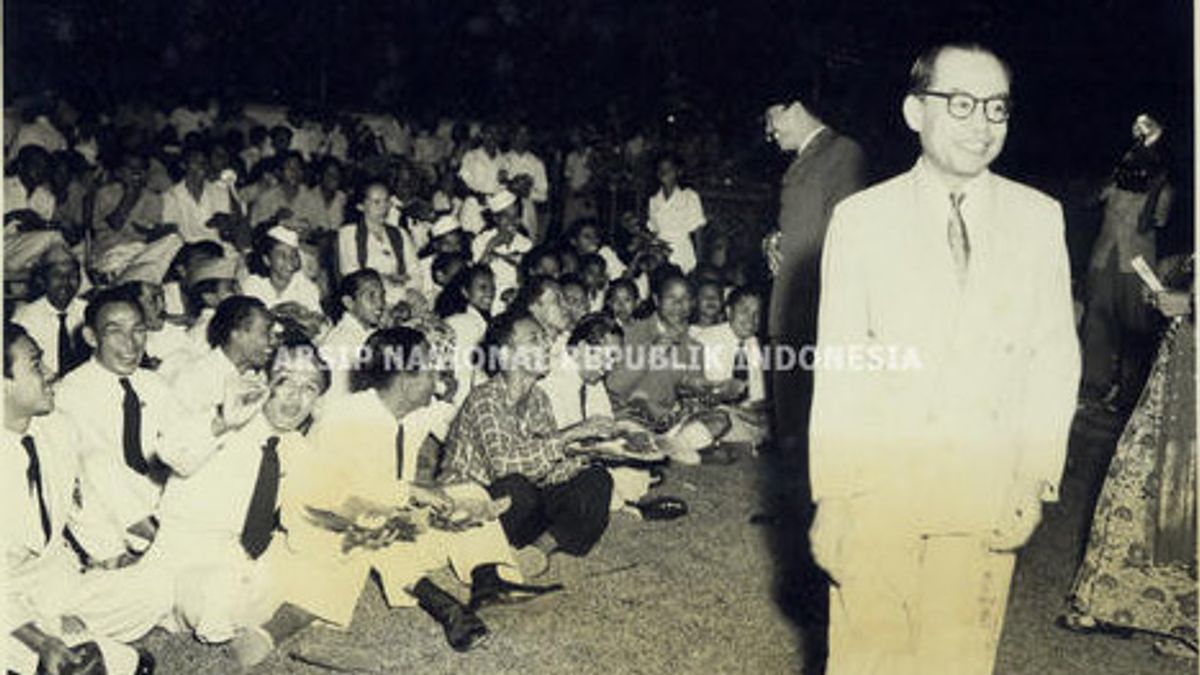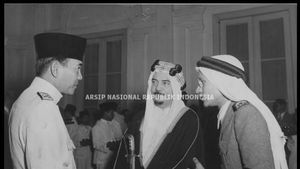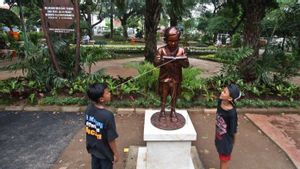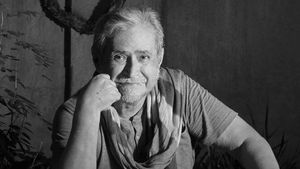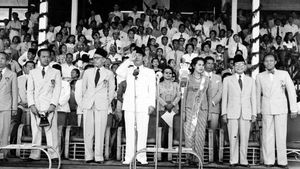JAKARTA - Mohammad Hatta considers European culture not as bad. Time discipline, for example. His adoption of discipline became an example in breaking the shackles of colonialism. He was later known as a person who highly valued time.
The act of life was carried away until Indonesia became independent. He often criticizes people who do not respect time. Whoever it is. Bung Hatta even got angry at the person in charge of a restaurant in Germany because his services were slow, wasting time.
The hatred of the bumiputras towards the Europeans - especially the Dutch - once ingrained. Europeans actually put the natives in the lowest strata during the Dutch colonial period. Moreover, the natives were equated with animals.
Hate has its effect everywhere. European-smelling things have been rejected by all natives. However, Bung Hatta actually appeared different. He ventured to be selective in assessing European culture. All European cultures that contain great benefits for its development are adopted.
Discipline of time, especially. He didn't want to waste time. Life is what Hatta's "ammunition" explores education in Batavia (now: Jakarta), then the Netherlands. He belongs to a group of students who have no difficulty adapting to European education.
Bung Hatta was able to transform into an important figure in the movement of Bumiputra students in the Netherlands. He is very disciplined with time. He was always present on time during college and at promised time. Everything must be planned. No.
The testimony of Hatta who was disciplined in cases of time was recognized by many people. Because, he hates people who don't respect time.
The experience of hanging out with Dutch families from childhood in Bukittinggi to secondary education in Padang and Batavia. It is likely that this experience has prepared Hatta to live the atmosphere of Western society's life without significant cultural surprises.
Hatta was even able to better understand Western culture and civilization and absorb positive aspects of Western culture and civilization such as rational thinking, fragility in dress, correct attitude, order and discipline towards time (punctual). In the future Hatta was known as one of Indonesia's early leaders who was heavily influenced by the mindset, attitude and behavior of Western life (westernized) in a positive sense, "explained Zulfikri Suleman in the book Democracy for Indonesia: Bung Hatta's Political Thoughts (2010).
Hatta's discipline is never hampered by time. The older he is, the more he appreciates his time. He didn't want his time to be wasted on trivial things. He didn't even hesitate to reprimand anyone who violated time discipline.
Bung Hatta once reprimanded many people. From businessmen to military officials about time. Even when he was no longer the Vice President of Indonesia, his discipline did not go away. For example, when Hatta and his entourage went abroad in order to give lectures to various institutions in the United States and Europe.
One time Hatta and his entourage included their wife and eldest child, Meutia Hatta, trying to stop by a restaurant (restaurant) in a city in Germany. The entire group of 14 people was starving. Without further ado they immediately ordered sandwich, tea, and coffee.
In fact, the order that was eagerly awaited never came. In fact, a group of Europeans who came after they had been served first. Hatta was furious, not playing. A lot of time is wasted due to slow services from restaurants.
Bung Hatta then took the initiative to speak directly to the person in charge of the restaurant. Hatta expressed his frustration with the restaurant service that wasted their time in fluent German.
He also indicated that restaurant waiters saw them as Asian people so that services were different. Bung Hatta's anger brought results. The person in charge of the panicked restaurant then instructed his subordinates to take all orders from Bung Hatta and his entourage.
Hatta's anger in fact caught the attention of the whole group. They were amazed by Hatta's firmness, Meutia Hatta, especially. Moreover, Hatta expressed his objection to serving restaurants in fluent German.
Earlier there were dozens of people who came after us, why were they immediately served? Is it because we are foreigners so we are not considered entitled to the same service as those who came after us?
"You as modern people certainly know that time is very valuable, you can't ignore us and make us lose time. In today's modern era, all must get their rights equally. We will also fulfill our obligation to pay our orders," explained Bung Hatta as written by his eldest son, Meutia Farida Hatta in the book Bung Hatta in the Eyes of his Three Daughters (2015).
SEE ALSO:
The English, Chinese, Japanese, Arabic, and French versions are automatically generated by the AI. So there may still be inaccuracies in translating, please always see Indonesian as our main language. (system supported by DigitalSiber.id)
